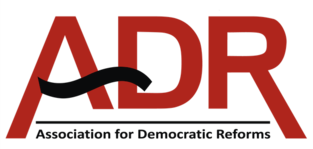With the union cabinet approving a proposal to amend the RTI Act to keep political parties out of its purview, the controversy about six national political parties having been declared “public authorities” by the CIC has taken a rather serious turn. Political parties, acting though Parliament, are on the verge of undoing a law that Parliament itself had given to the nation. The argument that the law should apply to all other bodies in the country but not to political parties sounds very strange. It can only add to the suspicion that political parties actually have something to hide from the citizens of the country, which is not a healthy development for democracy in the country.
The intense debate that followed the CIC’s decision of June 3 generated a lot of misconceptions about the decision. Some of these border on being myths. Three of the most misleading myths are:
Myth No. 1: The decision makes the CIC a second boss of political parties in addition to the existing one, the Election Commission of India (ECI).
Reality: There are thousands of public authorities in the country. It is citizens who ask public authorities for information, the CIC does not ask them. The decision empowers citizens to seek information. Even the ECI is not a “boss” of political parties; it functions within the limits of the Constitution and judgments of the courts.
Myth No. 2: All kinds of stupid questions will be asked which will jeopardize the functioning of political parties.
Reality: The RTI Act is not a foolish or childish document. It was passed by the Parliament of this country and assented to by the President. It has been hailed as one of the best in the world even outside the country. It had anticipated, like all laws do, the possibility of misuse. It makes provisions for the public authority to refuse to give information if the information is not appropriate, damaging to the public authority or to national interest. But reasons have to be given for such refusal, and these reasons have to be acceptable to the appropriate authority, and not arbitrary based on whims.
Myth No. 3: Political parties give all necessary information to the ECI and income tax authorities, and citizens can get it from them.
Reality: This is not true. The Association for Democratic Reforms (ADR) got copies of income tax returns of political parties through a long-drawn RTI process in 2008. It was discovered from the IT returns that sources of only 20 per cent of the total income, on average, were disclosed in the IT returns. The sources of the balance 80 per cent remain shrouded in mystery. This is what led ADR to seek more information from political parties.
They refused saying they would not do so as they were not public authorities. This is what led to ADR’s complaint to the CIC. All appropriate information is not available to citizens.
The CIC’s decision is indeed a very significant step forward in strengthening the political and electoral systems. It certainly has potential risks but so did the RTI Act when it was enacted. Like all laws, this decision will also evolve with time and use, as all legislation evolves with essential litigation.
Even if any of the political parties covered by the decision felt aggrieved by it, the correct legal course of action would have been to file a writ petition in the high court. Even the Government of India could have done that. Trying to amend the Act to specifically exempt political parties from its purview smacks of arrogance and high-handedness. It creates the impression that the political establishment considers itself above the law of the land; possibly for the simple reason that it controls the law making process though the parliament.
Political parties are essential for democracy, particularly for a representative democracy such as ours. The connect of political parties with the people is critical for the social contract of democracy to work. The decision of the CIC increases the prospect of that connection being made. All right thinking citizens, including parliamentarians, must oppose all attempts at undoing or diluting it.
Jagdeep S Chhokar is former professor, Dean, and Director In-charge of Indian Institute of Management, Ahmedabad. Views expressed are personal.






